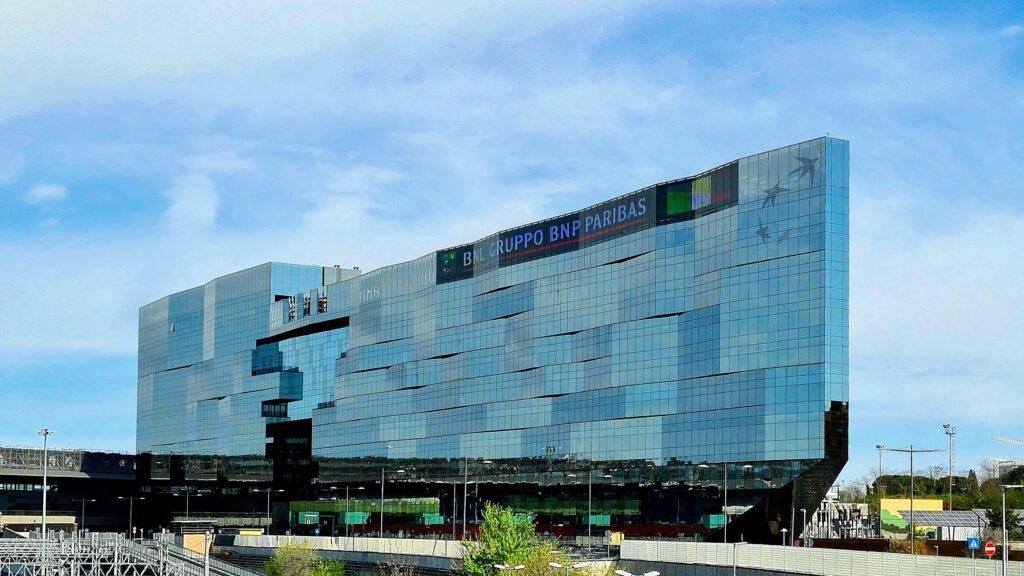BNP Paribas Empowers Microfinance with Inclusive & Sustainability-Linked Financing

- BNP Paribas, in partnership with the JuST Institute, innovates in microfinance and develops Inclusive & Sustainability-Linked Financing (ISLF) for all players in inclusive finance.
- Subject to achievement of predefined environmental, social and just transition objectives, microfinance institutions will be able to benefit from reduced interest rates or technical assistance and will be supported by the JuST Institute in their actions to promote ecological transition.
- The first three of these loans have been granted by BNP Paribas to three microfinance players in Europe and Brazil: L’Adie in France, PerMicro in Italy and Banco da Familia in Brazil.
Over the past several years, BNP Paribas has been very active in Sustainability-Linked Loans (SLL), which aim to foster companies to improve their ESG performance by directly linking the financial conditions of the loan to primarily environmental but also social or governance objectives. By end September 2023, BNP Paribas was No. 1 worldwide and in EMEA in sustainable finance.
BNP Paribas has been supporting microfinance institutions for over 30 years. By drawing on their expertise in Sustainability-Linked Loans (SLL), the bank aims to adapt this financial mechanism to microfinance through Inclusive & Sustainability-Linked Financing (ISLF). By reaching the environmental, social and just transition objectives predefined by the microfinance institution (MFI), BNP Paribas and the JuST Institute will help the MFI to benefit from reduced interest rates or from technical assistance. The achievement of these goals will be measured by an evaluator.
On the occasion of the European Microfinance Week, BNP Paribas announces the granting of three Inclusive & Sustainability-Linked Financing, which include environmental, social and just transition objectives, to microfinance institutions in Europe and Brazil:
– L’Adie in France: Since its creation in 1989, over 180,000 entrepreneurs in France have received financing. As part of its Inclusive & Sustainability-Linked Financing (ISLF), several objectives are monitored: Number of professional loans to women, number of loans to entrepreneurs from priority neighborhoods of the city and welfare recipients; share of microloans that finance the environmental transition of its clients; reduction of the carbon footprint of its activities.
– PerMicro in Italy: Founded in 2007, PerMicro grants microloans to entrepreneurs and households throughout Italy. As part of its Inclusive & Sustainability-Linked Financing (ISLF), several objectives are monitored: Volume of microloans to microenterprises run by young people and women; value of the portfolio dedicated to financing green technologies and practices, including sustainable mobility, energy efficiency and renewable energies; volume of loans with environmental impact and climate vulnerability assessment.
– Banco da Familia in Brazil: Created in 1998, Banco da Familia promotes economic development in southern Brazil (Santa Catarina, Rio Grande do Sul and Paraná) through loans to small entrepreneurs. As part of its Inclusive & Sustainability-Linked Financing (ISLF), several objectives are monitored: Volume of loans dedicated to renewable energy projects; Volume of loans dedicated to water access projects; percentage of credit agents trained in managing risks and opportunities related to biodiversity; number of agricultural loans analyzed during the year with climate and biodiversity indicators.
Related Article: JSW Cement Signs Sustainability Linked Loan Agreement of $50 Million with BNP Paribas
“Microfinance plays a fundamental economic role for microentrepreneurs who do not have access to traditional bank financing and are suffering from climate change and biodiversity loss. The most innovative aspect of Inclusive & Sustainability-Linked Financing launched with the JuST Institute is to provide reduced interest rates or technical assistance if environmental, social and just transition goals are met. A winning approach that benefits both microfinance institutions and their clients.” – Laurence Pessez, Head of CSR and Deputy Head of Company Engagement at BNP Paribas
“Climate change and biodiversity loss affect poor households, microenterprises and small businesses in particular. This innovation seeks to equip microfinance institutions with the necessary capabilities, tools and funds to enable their clients to adapt and protect their ecosystems and livelihoods. A key feature of the ISLF is its transformative nature: the combination and synergy of the dedicated technical assistance provided by the JuST Institute and the tailored financing provided by BNP Paribas will support inclusive finance players towards their transformation and the development of new capabilities to achieve higher social and environmental objectives.” – Davide Forcella, Director of the JuST Institute












